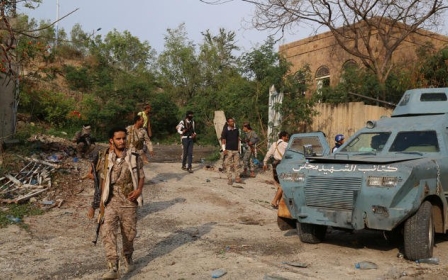Yemen rebels to boycott UN envoy over alleged bias

Rebels who control the Yemeni capital Sanaa have said they will have no further dealings with a UN envoy who has conducted months of shuttle diplomacy with the Saudi-backed government.
The head of the rebel-installed Supreme Political Council, Saleh al-Samad, accused the envoy of bias and said he would no longer be allowed entry to rebel-held areas.
"We say unanimously that the envoy is no longer welcome here," Samad said in a televised speech late on Monday.
"There will be no more contact with Ismail Ould Cheikh Ahmed and he is not welcome here."
Samad said the decision was taken jointly by the Houthi Shia rebels and their allies in the General People's Congress of former president Ali Abdullah Saleh.
The rebels' announcement comes after an abortive visit by the envoy to Sanaa last month in which he was mobbed by protesters and failed to secure any meetings with rebel representatives.
After the incident, the UN urged authorities in Sanaa to investigate the "grave attack" on Ahmed's convoy as it travelled from the airport to the UN compound. The Houthi-run Saba news agency denied any such attack had taken place.
Ahmed had been trying to broker a ceasefire for the holy Muslim fasting month of Ramadan which began on 27 May.
More than 10,000 people have been killed since a Saudi-led coalition launched a military intervention in March 2015 to prop up the government of Abd Rabbo Mansour Hadi.
Along with Sanaa, the rebels still control most of the north and the Red Sea coastline, including the key port of Hodeida.
The coalition has imposed an air and sea blockade of rebel-held territory and only UN-supervised deliveries of food and medicines are allowed, nearly all of them through Hodeida.
With some 17 million people facing dire food shortages, UN officials have warned of the risk of famine.
The country has also been hit by a cholera outbreak that has killed more than 500 people.
Middle East Eye propose une couverture et une analyse indépendantes et incomparables du Moyen-Orient, de l’Afrique du Nord et d’autres régions du monde. Pour en savoir plus sur la reprise de ce contenu et les frais qui s’appliquent, veuillez remplir ce formulaire [en anglais]. Pour en savoir plus sur MEE, cliquez ici [en anglais].




